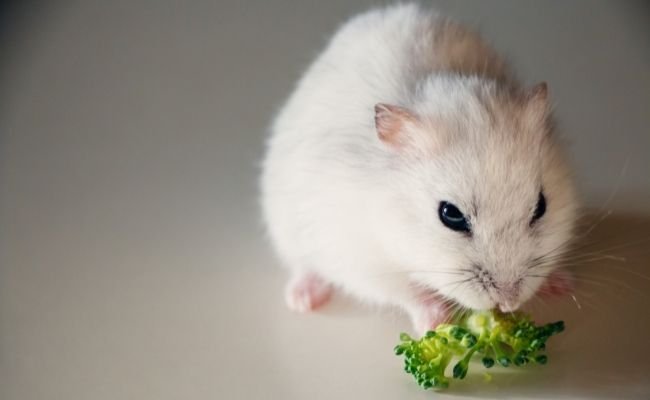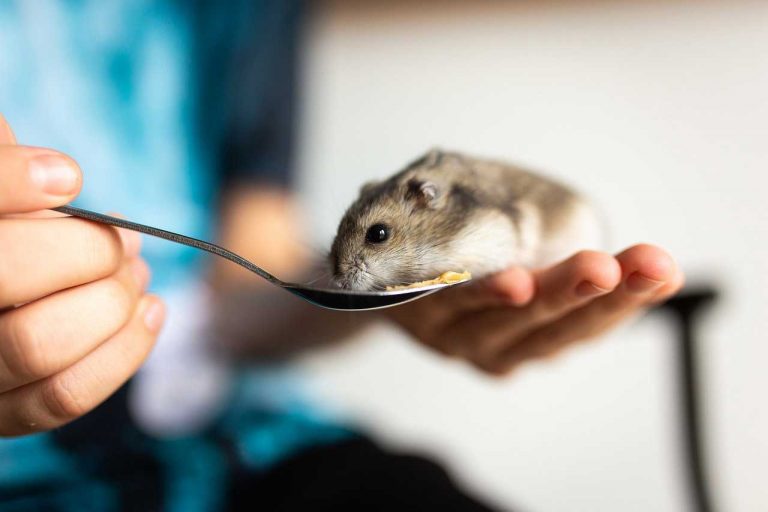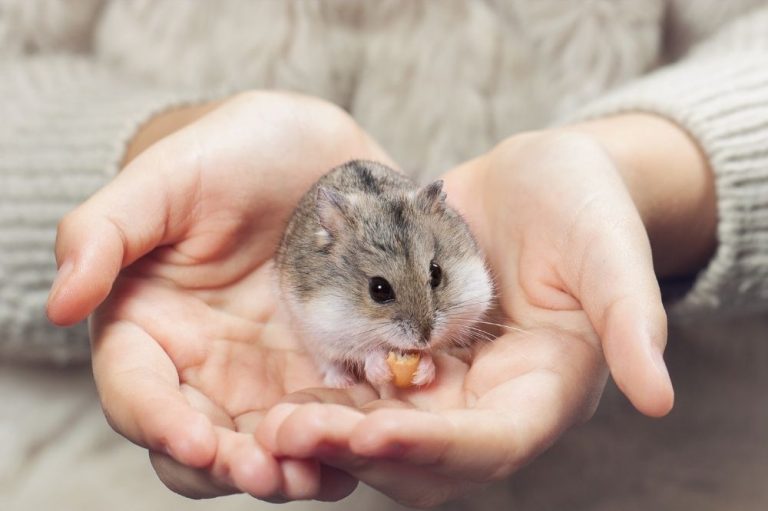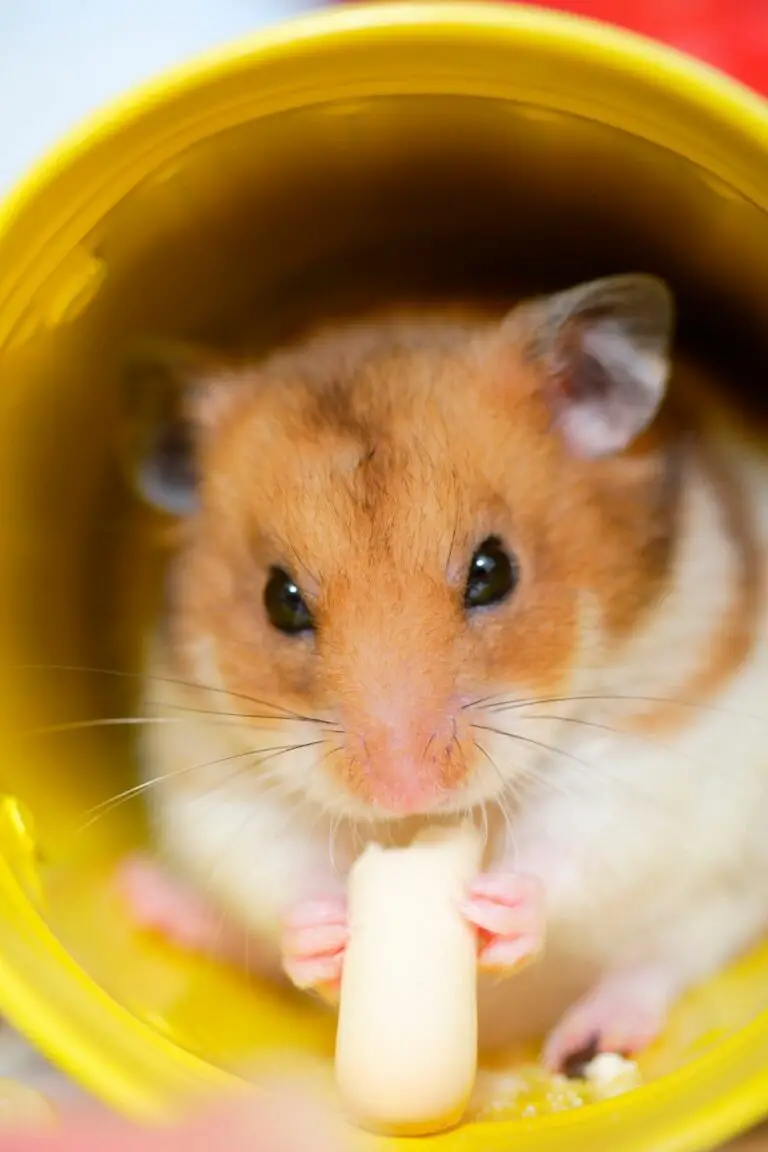All About Hamster Dental Health – Everything You Need To Know!
Keeping your hamster healthy requires that you know some of the common health issues to expect, their signs, treatment, and measures to take for prevention. And yes, dental-related issues are among the most common ones hamsters face.
Unfortunately, most hamster owners are still not well-versed about the health issues related to their pet’s teeth. In this article, you’ll learn all about hamster dental health.
We’ll start by looking at the common issues that affect your pet’s teeth, then move on to signs and prevention methods, and finally look at what to do if you spot any problems. Let’s get started!
Common Hamster Dental Issues
Hamsters use their teeth every day, and that’s why you need to ensure that they are healthy and strong. As a hamster owner, you’ll need to pay special attention to your pet’s dental health so that he can live longer, healthier, and happier.
There are many dental problems that hamsters may face. Some of them include:
Overgrown Teeth

One thing about hamster teeth is that they grow throughout the pet’s life. That also applies for other pets such as rabbits. The incisors are the most visible, simply because they’re bigger and are on the front part of the mouth.
When incisors get too long, your pet won’t be able to eat properly because food will only touch the top of his mouth. That could cause a problem with malnutrition.
Tooth Decay
Like humans, hamsters may suffer tooth decay due to poor dental hygiene. Food particles that get stuck between teeth, especially if your pet doesn’t chew his food thoroughly, may develop into plaque and tartar.
The latter is the main cause of tooth decay. That’s why it’s important to feed your hamster food containing fiber. Fiber acts as a natural toothbrush and will help clean his teeth each time he chews.
Broken Teeth
Hamsters love chewing on hard things such as wood and rocks, which may lead to the breaking or chipping of their teeth. Their ever-growing incisors even increase the chances of tooth breakage.
If you notice your pet is missing a part of their tooth, you must take them to a veterinarian immediately. The hamster doctor will assess the tooth and determine the appropriate treatment to help your pet recover.
Tooth abscess and root exposure
Root exposure and tooth abscesses are also common dental issues hamsters face. A tooth root is a portion of the tooth that’s still embedded in the jawbone after an eruption.
This happens because the gums recede as your pet grows older, exposing part of the tooth roots or the entire root altogether. Tooth abscesses are pus-filled swellings that develop around the tooth, often characterized by pain and inflammation in the surrounding tissue.
Signs Of Hamster Dental Issues
The earlier you catch dental problems in your pet, the better it is for them. That’s because tooth-related conditions are painful and may lead to infection, which sometimes when not treated early enough may spread to the other parts of your hamster’s body.
So how can you tell that something is wrong with your hamster? Well, if they show any of the common signs below, then you must take them to a veterinarian immediately.
- Decreased Appetite And Lethargy
- Swelling around the face
- Pus formation around mouth
- Bad breath
- Loss of appetite
- Discomfort when eating
- Pain when chewing
- Breathing problems due to facial swelling
If your hamster pet is suffering from dental issues, then you should see some of the signs listed above. However, you have to know that the signs will vary depending on the type of dental problem they have.
Some dental issues are easy to spot and don’t need to come accompanied by any signs for you to recognize them. A case in point is overgrown teeth.
If you notice any of these signs, take your pet to the veterinarian immediately. Only a hamster doctor can provide your furry friend with care and treatment that will help him get better and avoid complications.
Prevention Method & Other Tips
Prevention is the best way to help your hamster avoid dental problems. By putting into practice the things mentioned below, you can reduce the chances of tooth decay, overgrown teeth, broken or chipped teeth, and other issues.
Consider Fiber-Rich Foods

Feeding your hamster foods that are rich in fiber is one of the best ways to keep their teeth clean and healthy. As your hamster chews foods rich in fiber, the fiber acts as a natural toothbrush, just as earlier stated.
That’s helpful, considering that their tiny mouths won’t allow you to brush their teeth. That means if you haven’t been offering your hamster fiber-rich foods, then it’s time you reconsider. Things like carrots, greens, apples, and seeds contain a great deal of fiber.
Provide Safe Chew Toys
Chew toys aren’t just for fun. They’re also there to help your pet keep his teeth at the right length by letting him have fun while chewing on them. These toys help hamsters file down their teeth, which in turn strengthens them and reduces the chances of overgrown teeth in the future.
Tooth Trimming
The ever-growing teeth of your hamster end up chipping or breaking because they’re not filed down correctly. And while it’s possible for the hamsters to file them down as they chew, just as earlier stated, sometimes they aren’t able to keep them at an ideal length.
That’s where trimming comes in. It’s best to have it done by a vet to avoid any unnecessary accidents. Hamsters will feel relaxed around their doctors, making it easier to carry out any procedures they need.
Provide The Right Minerals
If you want to make sure your hamster has good dental health, it’s best to provide him with the right minerals. Dental-enhancing minerals will keep your pet’s teeth strong and unlikely to break.
Minerals like calcium and phosphorous are known for helping strengthen bones and teeth. Make sure the mineral content is suitable for your pet’s age before purchasing these products.
What To Do If You Spot A Problem
When you notice that your pet has a dental problem, the best thing to do is to take him to the veterinarian right away. Only a professional will be able to provide your pet with the care that will help the hamster feel better and recover from the problems.
Depending on where the dental disease is, the vet may prescribe the right medication for your hamster. Your little buddy’s doctor may also recommend soaking his food in water before feeding him.
Unless you are a vet yourself, never take things into your own hands when it comes to your hamster’s teeth. Besides the fact that you may not be able to treat and fix their dental problems, you could end up hurting them in the process.
That’s why it’s best to leave everything to a professional who has dealt with such cases before and knows how to handle hamsters safely and efficiently.
Final Verdict
Dental health is important to our pets, and it’s also something we should keep an eye on. By knowing the common signs and symptoms of dental problems, you can provide your furry friend with the right treatment and reduce the chances of complications.







